
You always assume anything really interesting must have happened on the other side of the world. I rather suspect kids raised in Jerusalem, Athens, or Volgograd feel pretty blasé about their local history as well. However, as a product of the American Deep South myself, there was quite a lot of tragic stuff that once unfolded in my backyard.
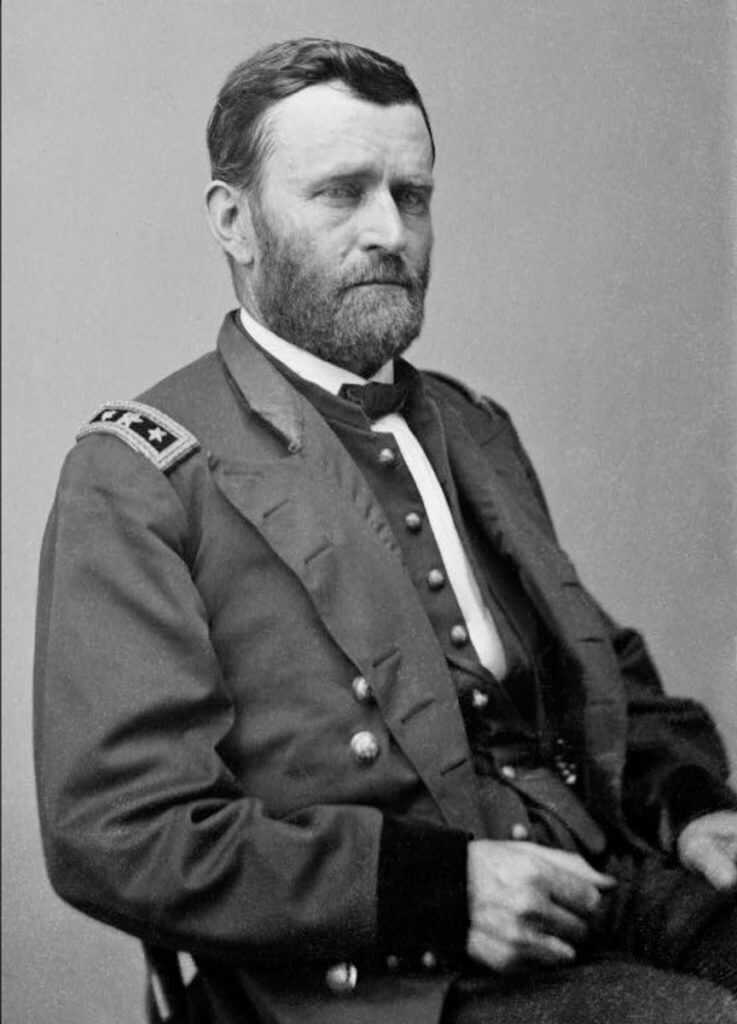
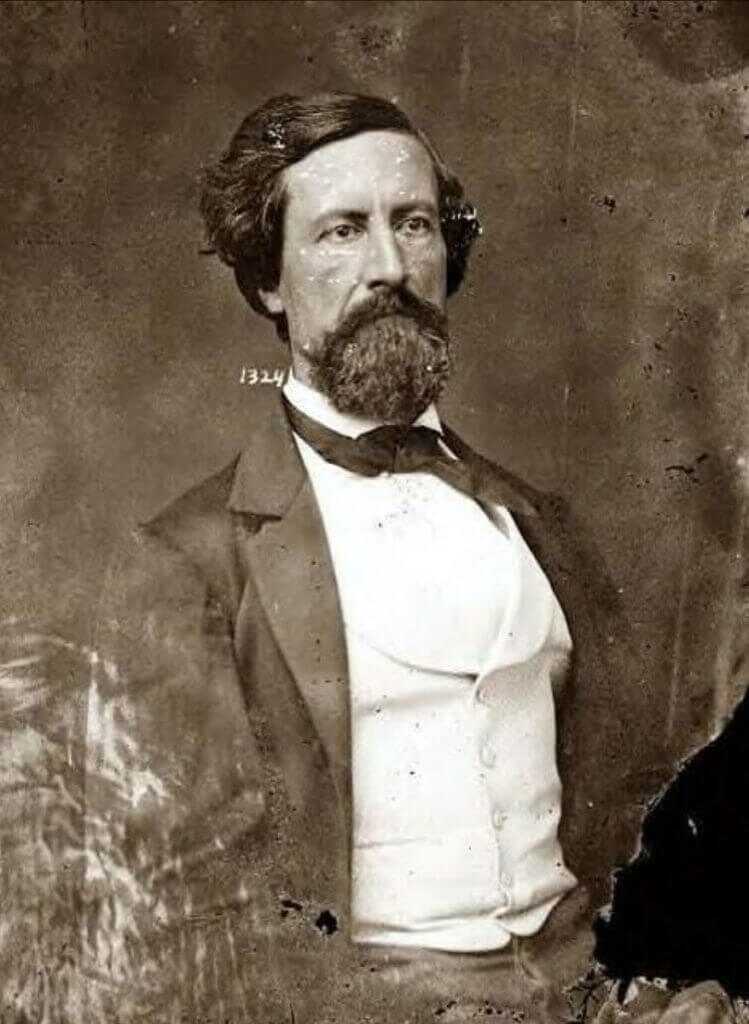
It was the early summer of 1863, and America was rabid to tear itself apart. The war had been going on for two long bloody years, and the ultimate outcome was far from certain. Lee and Longstreet were preparing to spend the Army of Northern Virginia at Gettysburg. Simultaneously some 1,000 miles to the Southwest 70,000 Federal troops under US Grant stood poised to wrest control of a little Mississippi town called Vicksburg from General John Pemberton’s 33,000 Confederates.
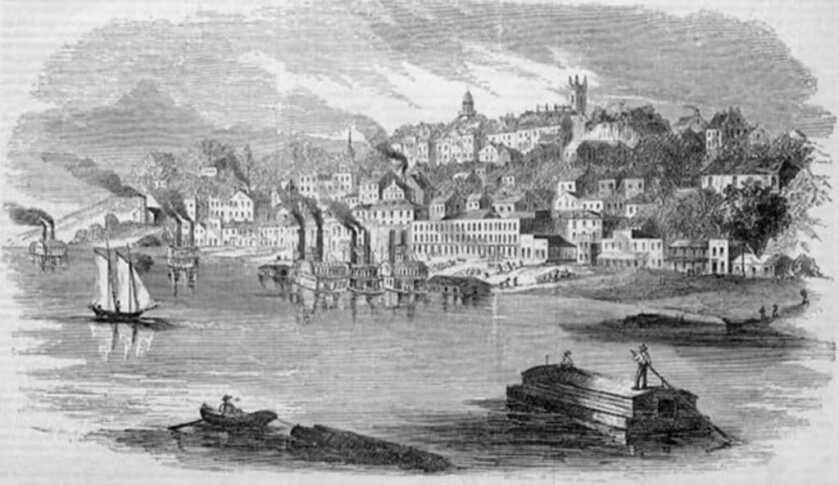
Vicksburg held a commanding view of the Mississippi River, then the equivalent of the nation’s only north-south interstate highway. Pemberton’s Confederates held it. Grant’s Federals wanted it. The stage was set for an epic siege.
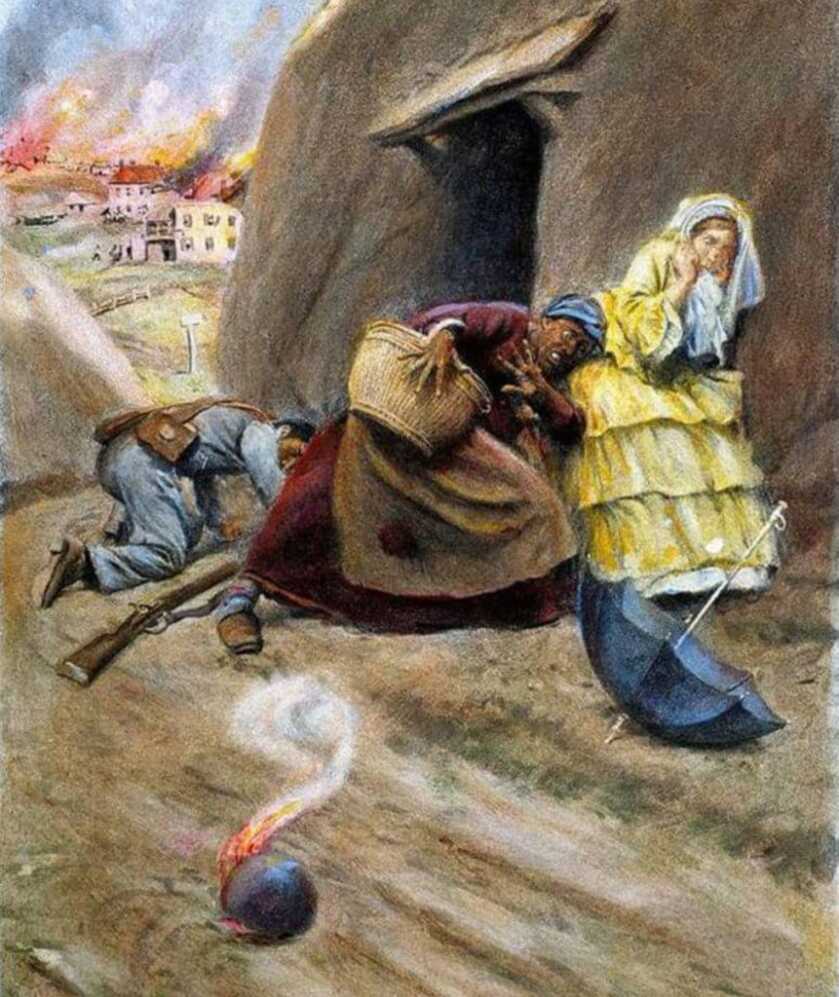
Rivers of ink have been spilt exploring the innermost thoughts, campaigns, successes, and failures of the Generals. These rarefied military rock stars get all the proper press. However, it isn’t the Generals who typically do the fighting and dying. It is in the small things and the normal folk where the true tragedy and triumph may be found. Such a poignant event occurred on a friend’s plantation just outside Vicksburg proper. The farm and associated holdings have been in my buddy’s family for as far back as institutional memory might span.
The Fog of War

This plantation had the poor fortune of hosting the most favorable river landing for Union troops staging for the pending siege. All the local males of military age had long since left to fight. What remained to tend the plantation was the matriarch, the young ladies of the family, and the standard complement of slaves. The entire Neapolitan mob toiled together to fight off rank starvation.
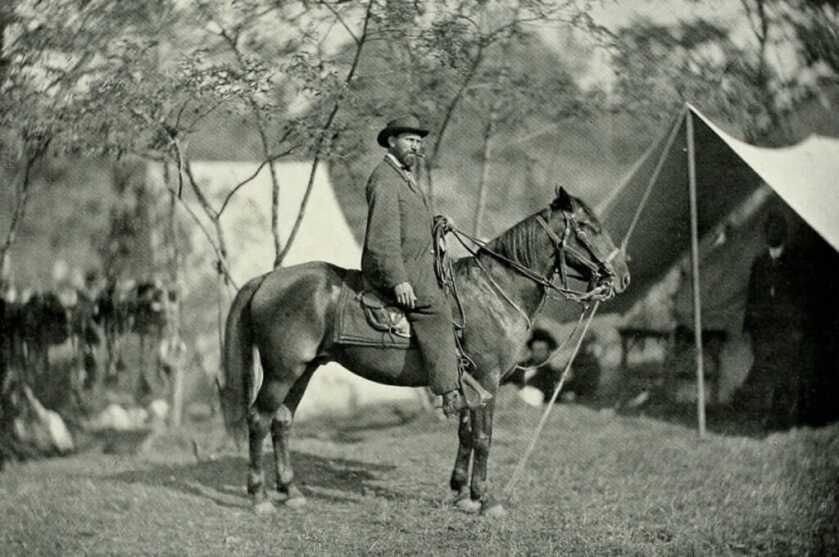
US Grant himself along with all of his entourage had landed the day before, swept through like locusts, and moved on. One of the young Union officers had a horse that had come up lame. He appropriated another from the family stable but apologized profusely for the imposition. Draft animals in this place at this time could literally spell the difference between life and death, and the young officer did not confiscate this one lightly.
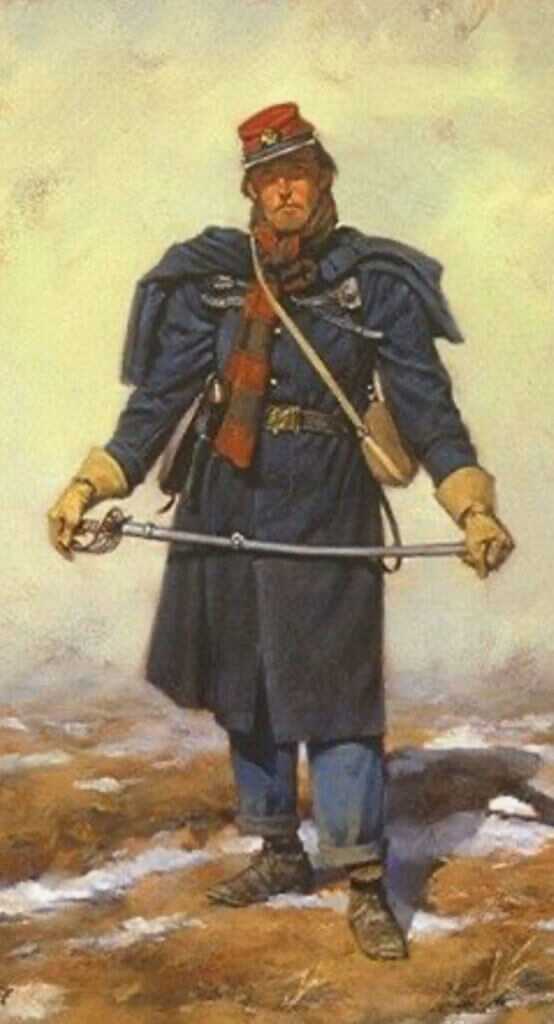
As quickly as the Union command group had arrived it was gone, moved on to the more pressing affairs of strangling the population of Vicksburg. The following day, however, there landed a solitary Union officer. He was armed, inebriated, and looking for trouble.
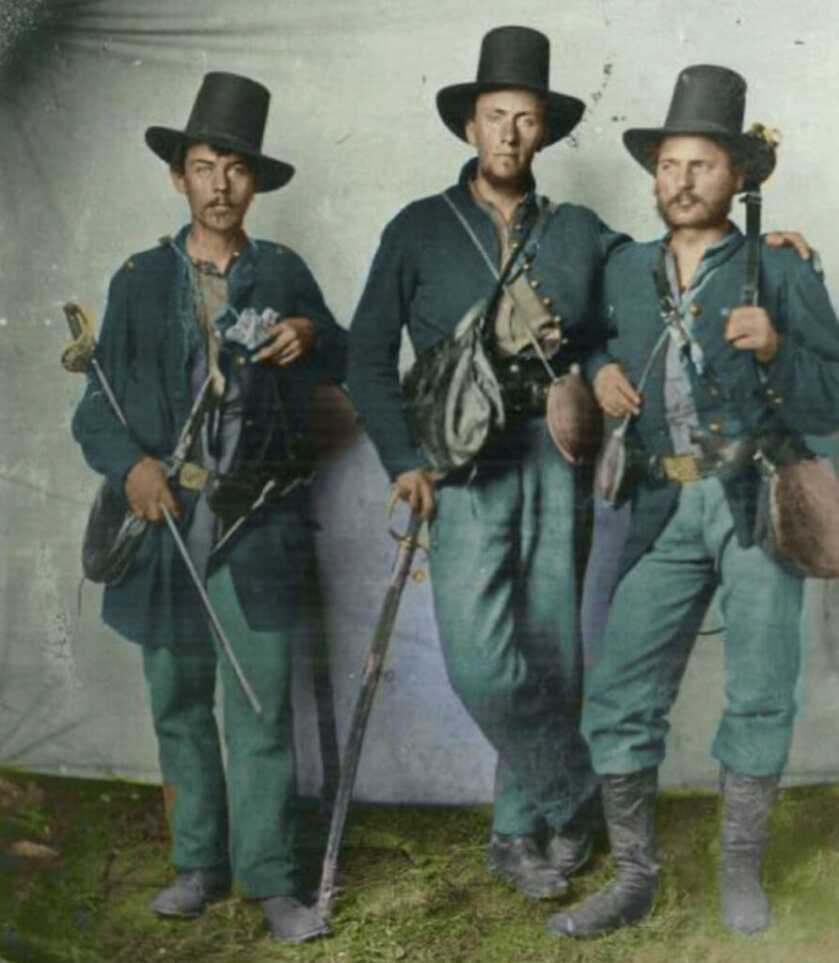
This Federal officer was a straggler. The specifics of his story were never known. However, when he realized both the local men as well as his superiors were long since gone he felt it was time to become acquainted with the local ladies.

This man carried a .58-caliber single-shot horse pistol as he made his way up onto the expansive porch of the plantation house. The matriarch planted herself in the doorway and forbade him entry into her home. The flower of young genteel Southern womanhood resided therein, and she could justifiably see little good to come from this Yankee drunkard gaining entry. The older woman was of modest build, however, and the younger man fairly strapping. Even in his intoxicated state, it became obvious that he was soon to get past her.
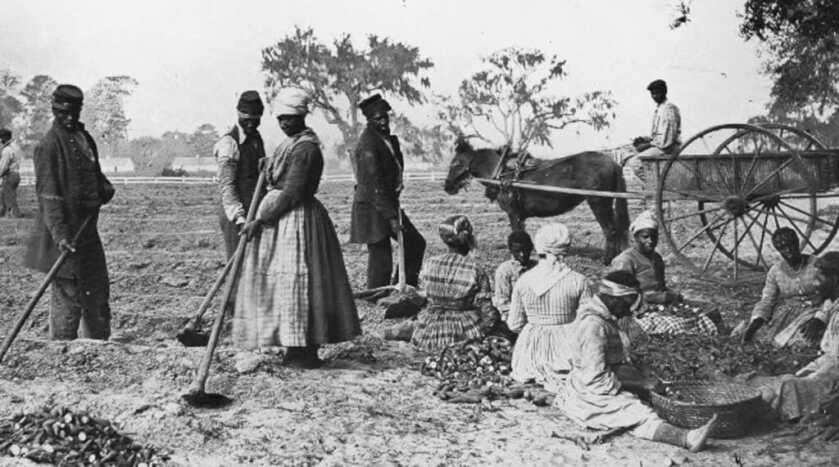
At the same time, the senior male slave was industriously digging a rose bed in front of the house, breaking up the ground with a heavy pickaxe. He was close enough to hear the matriarch’s frantic remonstrations but kept to himself. When the lady of the house planted herself boldly across the doorway the drunken soldier placed his hand on the butt of his pistol. He had traveled far from home to teach these Rebels a lesson, and no slight woman past her prime was going to deprive him of some proper companionship.
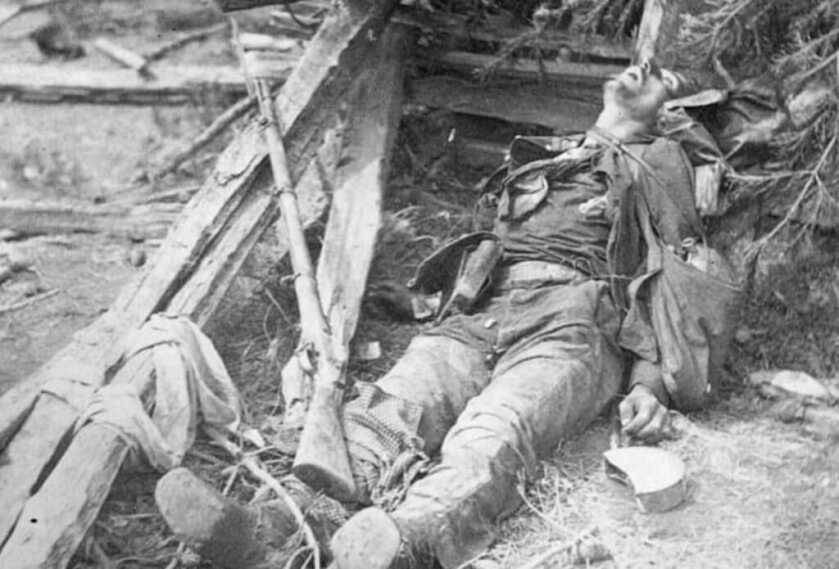
The family slave then felt compelled to act. While the inebriated Yankee argued vociferously with the lady of the house this man quietly walked up the steps behind him, swung the pickaxe he had previously been using on the rose bed, and buried the spike end up to the handle in the randy Federal’s skull. The Union officer was dead before he hit the porch.
The Gun
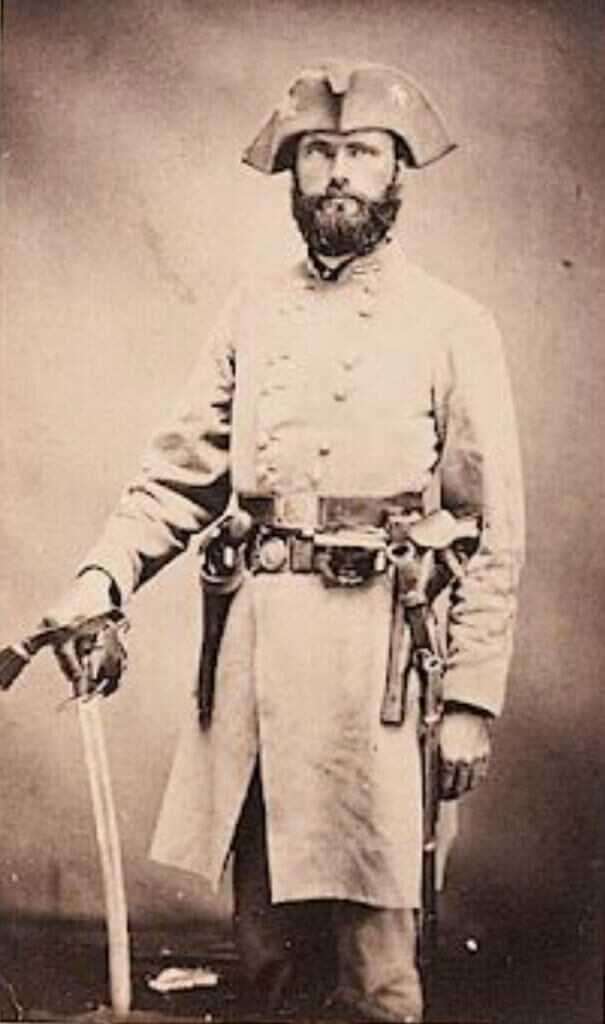
For many officers serving in the American Civil War, it was a come-as-you-are fight. The Union had the resources to kit out large combat formations in uniform clothing and weapons. Confederates were frequently a more motley mob. However, even Federal officers typically bought their own swords and sidearms.

I have seen a photograph of the pistol this hapless Union officer wielded that fateful day back in 1863. As near as I could tell it was a Model 1855 Harper’s Ferry single shot horse pistol. These heavy guns were typically carried across the pommel of the saddle in a symmetrical holster balanced on the opposite side by the gun’s detachable shoulder stock. They were intended to bring down an enemy’s mount if necessary. These .58-caliber guns were evolutionary developments of the original Model 1805 US Marshal Harper’s Ferry flintlock pistols.

Those earliest guns represented the first design produced by an American national armory. This flintlock weapon was the standard handgun of the American Dragoons who fought during the War of 1812. This same basic chassis was upgraded several times between 1805 and the onset of the Civil War.

The first .54-caliber M1805 guns were copied from the 1798-vintage French Pistolet Modele An. IX. The final model of 1855 featured octagonal rifling that tapered to a smoothbore at the muzzle. The ramrod was positively retained on a swivel to prevent its loss while reloading from horseback.

Most of these guns were primed using the notoriously unreliable Maynard tape priming system. They typically launched a 450-grain Minie ball with annular grease grooves. Though clearly obsolete on a battlefield liberally populated with revolvers, these massive guns still offered the sort of knockdown power usually reserved for shoulder arms.
The Rest of the Story

The matriarch of the family was rendered hysterical by the loyal slave’s spontaneous actions. While she was grateful that he had so ably defended the virtue of the young ladies inside the house, she was also justifiably terrified about what the Federals might do to them all once they discovered the killing. The story goes that the black man retrieved his pickaxe from the man’s skull and casually observed, “Well, ma’am, I’m digging an awful nice rose bed right over there.”

The slave buried the man on the spot before sowing his rose bushes liberally across the top of the grave. The heavy single-shot handgun has since been passed down through the generations all the way to the present. No one ever came inquiring after the fallen Union officer, and I suppose his corpse remains undisturbed underneath that Mississippi rose bed to this very day.
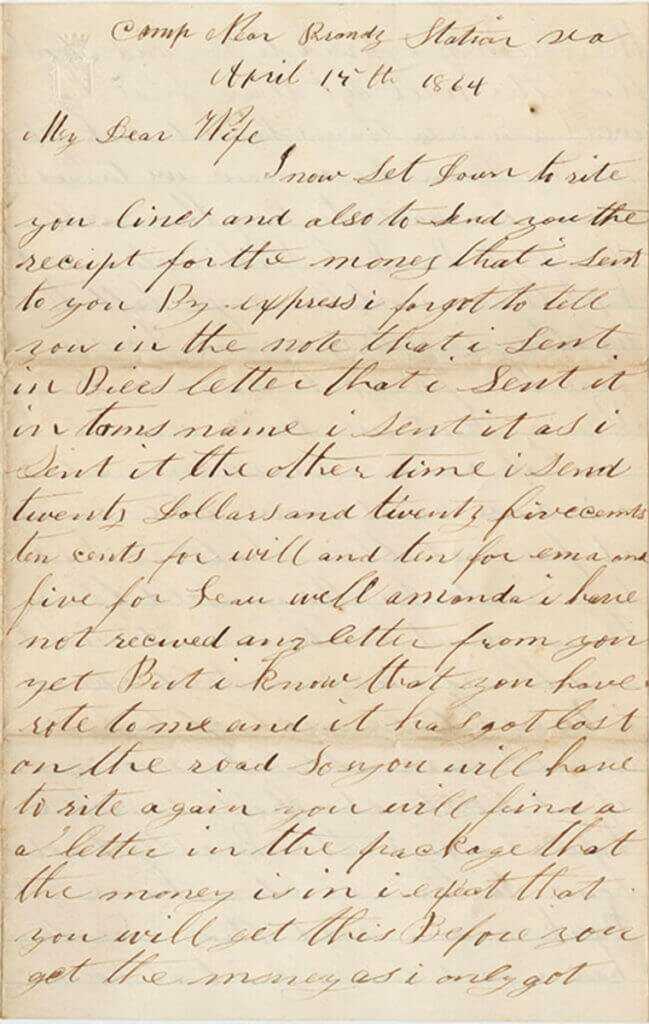
Two years later the war finally ground to its gory conclusion. The Union officer who had appropriated the horse was assigned to occupation duty in New Orleans. He posted a letter back to the matriarch of the plantation once again apologizing for having taken the animal and including fair monetary compensation for the loss. This letter remains in the family today as well.
Ruminations
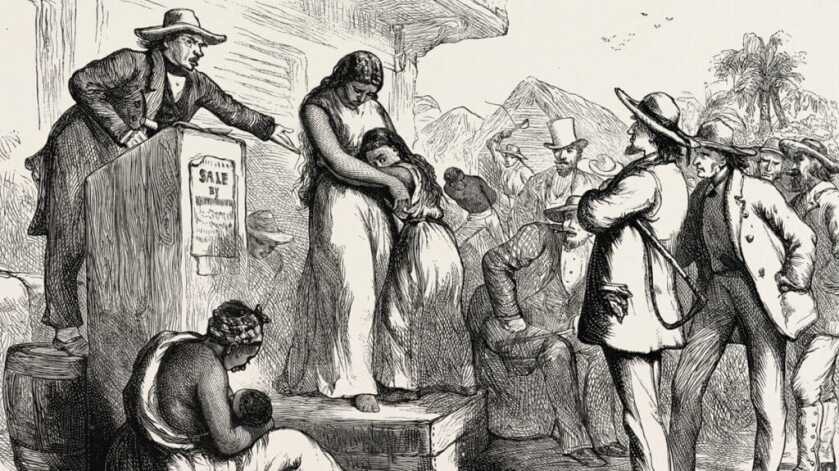
Most modern students of history weigh slavery as the primary causative agent behind this bloodiest war in American history. The ownership of human beings by other humans is morally repugnant to the civilized mind, so this makes for a reasonable narrative. Interestingly, roughly 90% of those fighting for the Confederacy did indeed not own slaves. However, they were typically young and, like most junior soldiers today, had not the time to accumulate much in the way of possessions.
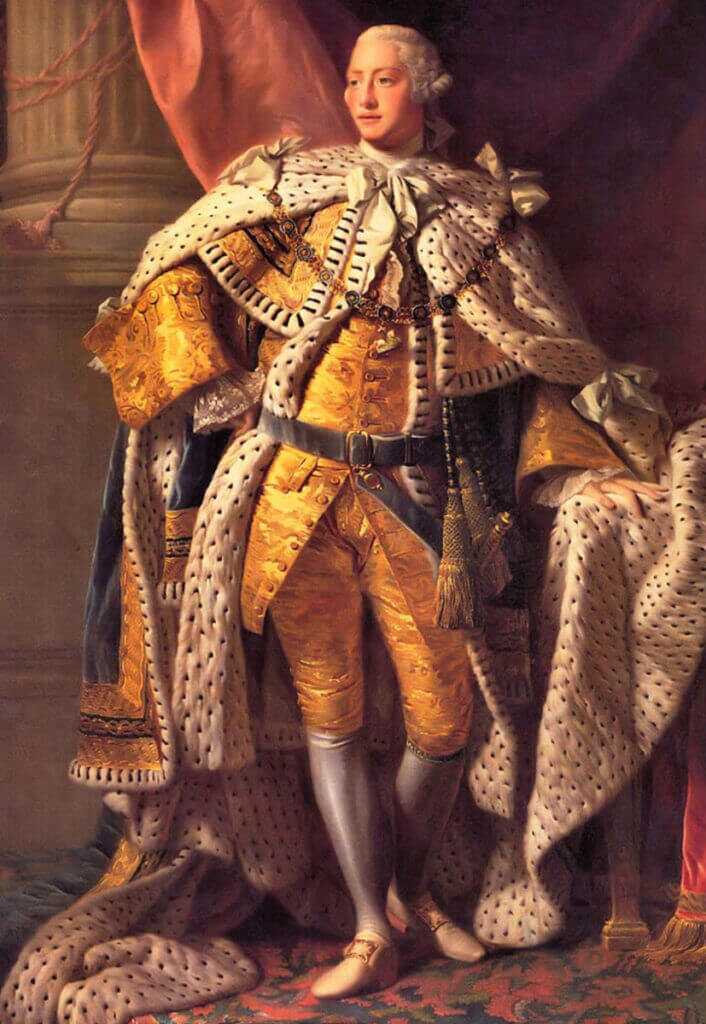
The capacity of individual states to determine their own destinies fundamentally shifted with the American Civil War. The founders never could have imagined the ponderous leviathan that the US federal government has become in the modern age. It is the most behemoth undertaking in all of human history. The expansive powers wielded by the US federal government would have been utterly terrifying to men who had staked their fortunes and their lives on an existential fight to throw off the oppressive tyranny of King George III, his intrusive governance, and his onerous taxes.

The concept of states’ rights died in 1865 along with the doomed Confederate cause. With the benefit of hindsight, this was indeed a modest price to pay to retire the reprehensible practice of slavery. Amidst an entire nation at war with itself, however, one small tragic drama played out on the front porch of a plantation house during a hot summer afternoon outside Vicksburg, Mississippi. This hapless Union officer’s unwitting contribution no doubt enhanced some simply superb Southern roses.
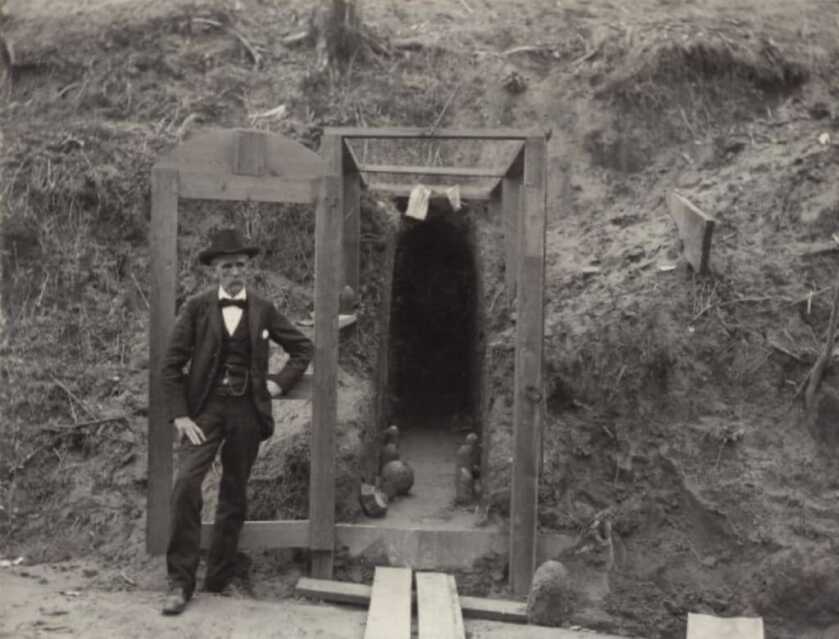
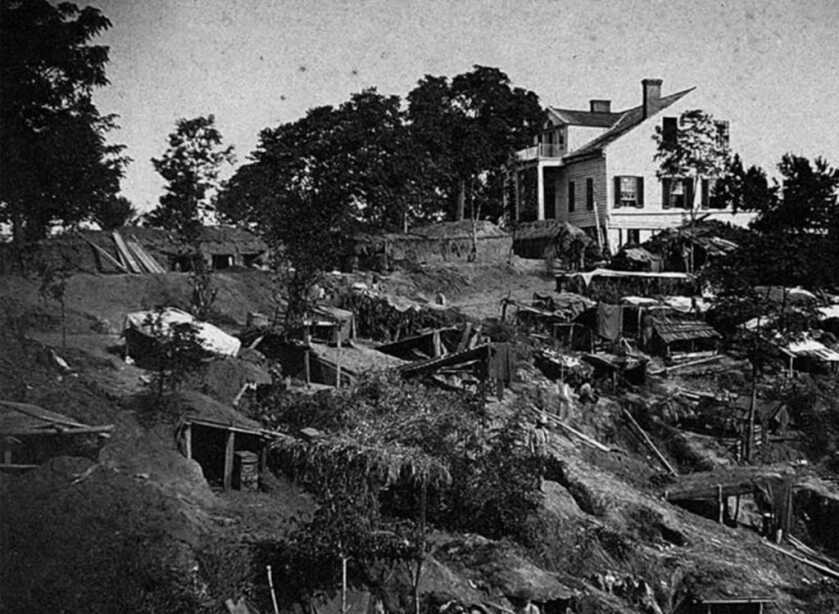
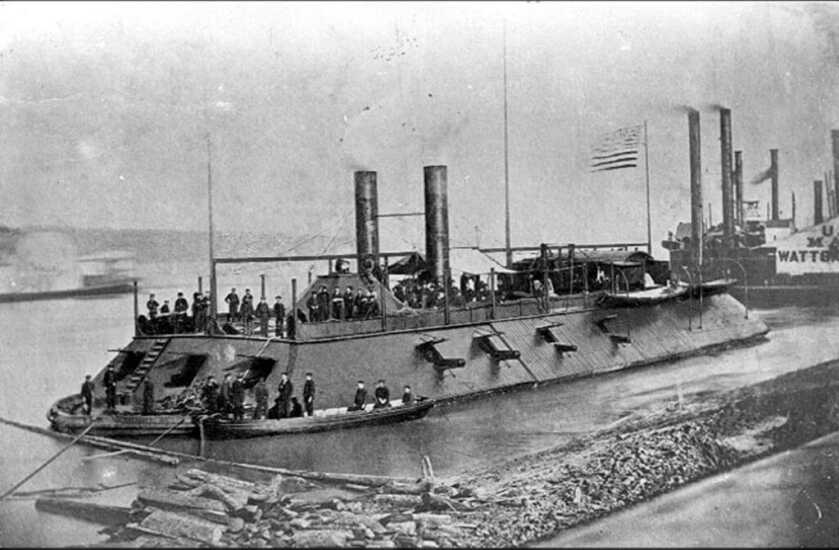



My great-great grandfather, Augustus D. Rape, was a drummer boy in the 46th Alabama Infantry and was captured at Vicksburg. As you might imagine, I am not disappointed to have missed being tagged with his last name. By all accounts a fine Christian man. Our church secretary’s great-grandfather was in the 30th Ohio infantry and was wounded at Vicksburg. I told her, “If my great-great grandfather shot your great grandfather, I apologize”. As always, you write a wonderful article. If it has your by-line, I read it, regardless of the subject. I have never been disappointed. (My favorite was Kim Jong-Un and the antiaircraft gun. Embarassingly hilarious.)
Good article about Vicksburg and slavery in the South. I do remember hearing a radio show on the growing problem of slavery and slave owners. The program was about the cost to keep slaves and of owning them.
I think the time was in 1857. The cost to keep slaves included the taxes, food and clothing, housing, and medical. Some owners compared these costs to free men working for pay. Some owners knew that one does not pay property taxes on property you don’t own, and most folks don’t like taxes anyway.
In respect, and with great loss of life, both North and South, the problem was solved with the end of the Civil War.
Another excellent article, Will! I have ancestors who fought for the Confederacy in the War between the States, yet not a single, solitary one owned slaves. Those who always refer to Lincoln as the “great emancipator” would do well to read his actual statements. His concern was always, first and foremost, preserving the Union. Adopting the convenient moral ground of emancipation was done to prevent England from entering the war on the side of the Confederacy. This was a very real threat as England’s textile mills desperately needed the cotton produced in the Deep South. The English hierarchy wasn’t keen on paying the political price of participating in the war, once Lincoln came up with the idea using slavery as a pivotal issue.
At any rate, no one alive then including Lincoln, could scarcely have guessed what an insatiable lust for absolute power would grip our centralized government. The only civilized way left to reign in the bloated bureaucracy of the Federal government is an Article 5 Convention of States. If that doesn’t prevail, we will again witness the destruction and atrocities of a “civil” war.
Interesting article describing the terrifying times of that era. I was actually surprised that the Yankee officer actually sent money back to the woman. That rarely happened, especially in the eastern campaign. There is a documented text called “War Atrocities Against Southern Civilians” which given historical accounts of other events. The Vicksburg battlefield is the most well preserved one I have ever seen. If you want to know what so called “Reconstruction” was like, read John Choades’: “Washington’s KKK: The Union League.” They will never teach the truth in schools. It conflicts with the politically correct narrative which is choking the liberty and self responsibility out of soul of our children.
But I do want to challenge your understanding of history with your statement: “ The concept of states’ rights died in 1865 along with the doomed Confederate cause. With the benefit of hindsight, this was indeed a modest price to pay to retire the reprehensible practice of slavery.” The concept of states’ rights did NOT die with the Confederate cause. States rights may have been ignored for most of the 150 years hence the War Between the States, but it’s indelible truth is still soundly a part of the Constitution. The Constitution was never changed. The 10th Amendment along with the Ninth and the Fourth still remain to reveal its sound truth to restrain the power of the Central government which has increased its overreaching tyranny to what it is today. Nullification is still a Constitutional act and has been used since its inception by Jefferson and Madison in the Kentucky and Virginia Resolutions of 1798-9 which nullified the tyrannical Alien and Sedition Acts of the Adam’s Administration. No, states rights are alive and well, especially if the people who by large are ignorant of the Constitution, learn and act for the right of self-government as our Founders and Framers created. Schools are teaching Marxism instead of Constitutional history. When that ends, and it beginning to, the people will awaken and defend their liberties. Read Thomas Woods’ period documented, non revisionist classic, “Nullification: How to Resist Federal Tyranny in the 21st Century.” You’ll be glad you did. That is, unless you prefer a centralized, immoral Leviathan to enslave you and become their vassals. A centralized state becomes evil because it accumulates too much power. As Lord Acton wrote, “ Power corrupts. Absolute power corrupts absolutely.” History has revealed this through time.
Thanks for the article. It brought human faces and situations to the period which as you mentioned can be so depersonalized.
States Rights? The Civil War would not have happened if there had been no slavery! Harriet Beecher Stowe’s book “Uncle Tom’s Cabin” is fiction, but the autobiographies of Frederick Douglass are not. I urge you to read one to find out what the life of a real slave was like.
I also “was born and raised in the Mississippi Delta”…beginning a bit over 6 decades ago…but, I haven’t adopted the politically-correct, but historically-incorrect, version of slavery being the primary cause of The War Between the States. However, I agree wholeheartedly with the author about the “reprehensible practice of slavery”.
Unfortunately, slavery isn’t as “reprehensible” to our modern “leaders” as they so frequently and conveniently pontificate. When former (Black) President Obama and his “We came, we saw, he died” Secretary of State Hillary Clinton initiated and enabled the destruction of the very socially stable Libya in 2011, the ongoing result even today is open-air slave markets that sell Black Africans into human bondage. Google it. Also look for Obama’s and/or Clinton’s subsequent comments on the subject. I can’t seem to locate their comments?!? As the TV character Gomer Pyle was apt to say, “Surprise! Surprise!”
As far as the primary cause of “The War Between the States” (frequently misnamed “The Civil War”), take a gander at Lew Rockwell’s rather brief analysis in the article linked below dating back to the year 2000…(HINT: “Follow the money.”)…
https://www.lewrockwell.com/2000/05/lew-rockwell/genesis-of-the-civil-war/
Yes, Lew explains why it was not really a “civil war” by its normal definition.
As far as the above article being over 20 years old, no new historical documents from the 1800’s have been recently unearthed to give historians any fresh perspectives on long-established historical facts and statements of the day.
At least one writer has previously opined (and I paraphrase), “Had you told the millions of white soldiers fighting for the north or the south that they were sacrificing life and limb to free black slaves or to defend the institution of slavery, they would have all laid down their weapons and gone home.”
Their common sentiment would have been, “That dog don’t hunt.”
As Lew Rockwell points out in the article above, the famed “Underground Railroad” for runaway slaves didn’t end in the northern states…it ended in Canada. Why wouldn’t the allegedly racially altruistic northerners have given refuge to runaway slaves for whom they were fighting a war and dying on battlefields to allegedly free?
See President Lincoln’s State of the Union speeches to educate yourselves about the common perceptions of racial equality in that era.
We have the benefit of time to see how wrong our southern and northern forefathers were concerning racial equality, but that doesn’t change who they were and what they thought at the time.
“History is written by the winners.”
– Napoleon Bonaparte
Well said. Follow the money: “Morrill Tariff.” It led to secession. The loss of the tariff let Lincoln to secretly invade the south during a truce at Ft. Sumter and Ft. Pickens (Florida). Invasion during a truce is an act of war. The war was over secession due to the loss of the tariff on the south, 75% of which went to corporate welfare favorites of the North to subside special industries and their fishing companies. Read “Lincoln Takes Command” by John S. Tilley. All the period documentation is there fir you to read.
Confederates were traitors to this country ..their ideals and behaviors were immoral..undemocratic and anti American..sounds familiar huh ?..yea I’m talking about trump and Jan .6….confederates were to lazy to do their own work ..so they exploited the cheapest labor possible..some things never change for rich racist hillbillies..now we call them deplorables..don’t give me the line that slavery was standard and accepted…every living man that has existed knows it’s wrong to keep another man against their will..this is exactly why we are in the position we are in as a country…statues and names and systemic racism is still here after all this time..white mans history is different than black,brown and Native American history…the white privaledged always deny the truth..white man lied ,cheated,stole,oppressed and enslaved the minority’s for their greedy gains…trump is bred from that same cloth as are many of you..like him..you are too stupid to see or just don’t care..either way…what comes around goes around…all things come full circle for the evil …stay tuned
You know nothing of history and the Constitution except for what you received from the Marxists in the polluted school systems. If you think the Confederates to be traitors, read Albert Bledsoe’s “Is Secession Treason.” Bledsoe wrote this treatise as a legal defense as the North was itching to hang Jefferson Davis for Treason. Davis was held in solitary confinement without habeus corpus for two years. Bledsoe’s defense was so Constitutionally sound that no Yankee lawyer would try Davis for Treason.
Raised in Ohio, I was once duped as you were until 30 years ago I was given another book by Tilley and I began my research which now comprises 8 book shelves of 18th and 19th Century history where I unlearned as Simon and Garfunkel sang, “all the crap I learned in high school.” I urge you to do the same.
It seems that your understanding of history is no better than your understanding of grammar. Perhaps if you focused more on education than misinformed political rants, you wouldn’t be seen as such an imbecile.
Wow, are you angry. You can’t even use punctuation.
I guess because you couldn’t get laid in high school, you’re taking out on us.
Chicks still don’t like you and you’ll always be just a friend no matter how much social justice BS you spew.
More hate speech from Bones.
This is your brain!
This is your brain on wokium.
Any questions?
The only good rebel is a dead rebel. True in 1865, true in 2021. Long live the Union.
Oh, yeah! Mr. Ben and Mr. Bones, don’t spew that s*#t too loudly here in the South……………I’ll live and die in Dixie! Away! Away!
Ah, another emotional response void of historical fact. You have your “union” all right which was initiated by Lincoln as a growing centralized state which has usurped power from you that you have yet to realize. As Ben Franklin warned, democracy feeds on itself and self destructs which is why the Framers developed a Federated Republic of states to defend the people from an overreaching centralized oligarchy of what we have right now which is one step away from totalitarianism.
First of all, the author’s insistence on apologizing and condemning the institution of slavery if very politically correct, and also nauseating. The vast majority of slaves were not only treated well, they were in better condition than the average small farmer (which made up the majority of Southerners and my ancestors). More Blacks actually served in the Confederate military (under arms) than did the Union and they served alongside their White brothers in arms (as did Hispanics, Native Americans, Chinese, etc), prior to the War the South was one of the most cosmopolitan areas of the nation. Slavery was brought to the Western hemisphere by the Spanish and Portuguese in the 16th century, the slaves brought to the US were brought by New England traders and at that time, up until the 19th century, slavery was considered just part of society. How about comparing the plight of the Northern industrial worker to the Southern slave. If the slaves in the South were so poorly treated, why did only 2% escape and there was NEVER a significant slave revolt, even during the War when the majority of Southern men were off fighting, Many slaves even fought to defend their owners (and their own) homes against the invaders.
“How about comparing the plight of the Northern industrial worker to the Southern slave.”
I doubt if many if any northern worker would volunteer to be a slave for life. Depending on the slave owner I could see a slave not wanting to leave.
If you could poll a hundred people of the era, I’m sure most would not choose the life of a slave.
“He brooded a moment. It wasn’t slavery,
That stale red-herring of Yankee knavery
Nor even states-rights, at least not solely,
But something so dim that it must be holy.
A voice, a fragrance, a taste of wine,
A face half -seen in old candleshine,
A yellow river, a blowing dust,
Something beyond you that you must trust,
Something so shrouded it must be great,
The dead men building the living State
From ‘simmon-seed on a sandy bottom,
The woman South in her rivers laving
That body whiter than new-blown cotton
And savage and sweet as wild-orange-blossom,
The dark hair streams on the barbarous bosom,
If there ever has been a land worth saving —
In Dixie land, I’ll take my stand,
And live and die for Dixie! . . . “
Stephen Vincent Benet – “John Brown’s Body”
A few things I’d like to point to. First, Lieutenant General James Longstreet did not want to fight at Gettysburg. Realizing that the Union army was out of position, he wanted to march down to D.C. to take the Capitol, which would have allowed the South to win the war. Longstreet late commented that Lee’s blood lust prevented logical thought. Have you never wondered why one of the greatest strategist in the world is not represented in statutes throughout the South?
Most Americans had never even seen a slave. Only about 2% of the population ever owned slaves, and of that 2%, approximately 25% were themselves Negro’s.
The war was not over slavery, but as most wars are fought, because of monetary complexity, and the banking oligarchs.
Thanks Will. As a son of multiple CV’s, I appreciate the evenhandedness of your story telling. Deo Vindice.
Well-written. What a terrific story. Interestingly enough, I lived down in Lee County, Florida for a time and made the acquaintance of some ‘Bama boys. They showed me photos of their ancestors who fought and died during the War Between the States. They were all farmers, and not one slave between them. Later on, in the early 1980’s, I had a property law professor from North Carolina whose family owned hundreds of acres of farmland, but not one slave. It was farmed by family and tenant farmers.
As the author duly notes, slavery is absolutely reprehensible. However, if you read the writings of leading Southern politicians before and during the War, including the addresses of Pres. Davis and the Congress of the Confederacy, while slavery is certainly mentioned and often justified both in degrading racialist and property rights terms, the key focus is always states rights and liberty. There is a reason why Washington appears on the Great Seal of the Confederacy. Great article. Keep up the outstanding work.
Mr. Dabbs, you ought to put together a book of these stories compiled from all your columns. Would make fascinating reading and be a nice addition to a personal library.
Thanks Will. As a son of multiple CV’s, I appreciate the evenhandedness of your story tellingly. Deo Vindice.
Slavery has long history by civilized countries. Not sure how you define civilized. Many Greeks were slaves of Romans and Greeks were also slaves of Greeks. However we have a long history of identifying those who do not share our view as uncivilized. Look at native Americsns. In the past Choice was between killing all the enemy or slavery for those unwilling to fight to the death. As I recall during WW2 we offered labor opportunities to German POWs.
A classic story of the loyal slave defending Southern Womanhood. Apocryphal, wouldn’t you say?
Seeing how we aren’t swearing on a stack of bibles and you weren’t there…buzz off ffs.
Not necessarily apocryphal. The slave could reasonably claim higher status on the plantation for having displayed loyalty to his mistress. And if the body was ever found, he could tell the Federals he didn’t want to kill the officer, he was forced to by the mistress. This man was the living embodiment of the fact that education and intelligence are not the same thing…
We’ve been to Vicksburg National Battlefield several times now. Enjoy going every time. Locals very friendly as is quite customary for southern folks.
Damn Yankees.
Damn Rebs
Throughly enjoyed reading your article. The Civil War has always fascinated me. Great reading!
Outstanding writing and great story. I really enjoy reading all your stories wherever I find them. Great job.